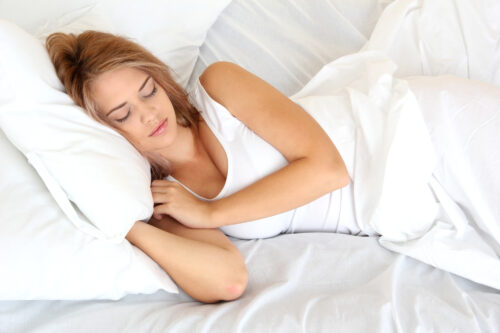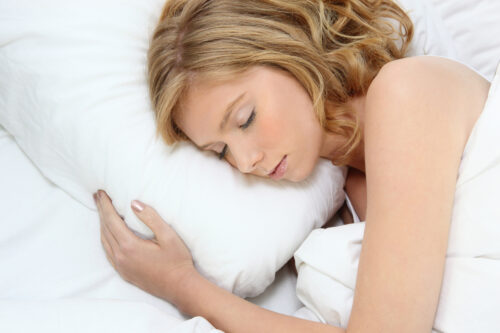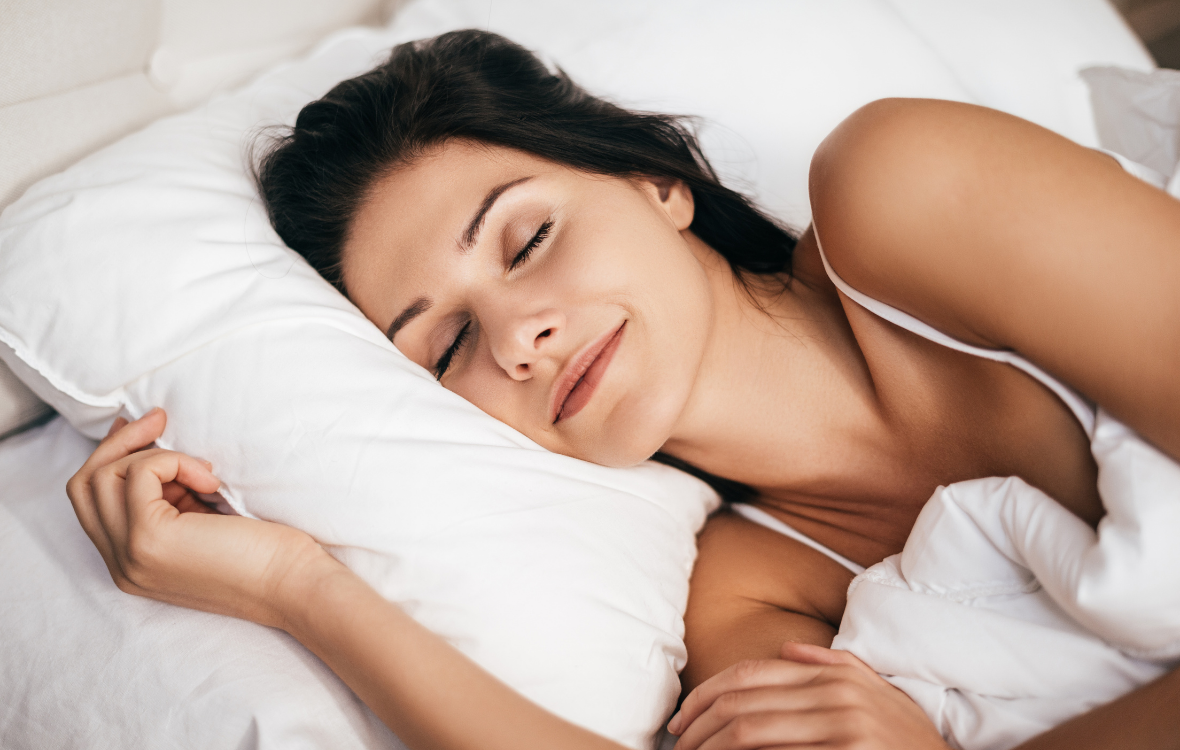We all know this feeling of being tired, to the point of feeling so exhausted that all you want is to curl up in bed …forever. Unfortunately, for most of us this is not an option. Having to be at work on time, getting kids to appointments, dealing with household chores, and simply managing life requires us to be awake.
So we trudge on, bags under our eyes, legs heavy, drinking our 4th double shot flat white by 10am, wondering how we are going to survive the rest of the day, week, month, year. Add a baby that doesn’t sleep and you may feel like you’ll never be rested again.
The good news is – there are some strategies that can help you be more present, more rested, more relaxed and awake. The bad news is – it won’t happen by itself. So what can you do, to feel less sleepy? And why is sleep so important?
I am sure you’ve heard a lot about why sleep is important and how it can impact your health. To summarize, sleep is important to keep your immune system functioning, boost your energy, decrease stress, enhance your brain function and memory and restore cellular health. If you would like more info about why sleep is just so important, head on over to my website where I give you some more insights as to why sleep is important and where you can also sign up to my 5 Day to Better Sleep Challenge!
For this article, let’s focus on what you can do, to get a good night’s sleep! In professional health circle’s this is called good sleep hygiene practises, however I like to call it wind down tips.
To get started, work out what time you have to get up in the morning and work backwards from there. If you get up at 6am every day, a solid 8 hours of sleep would mean you should be asleep by 10pm. Now ideally, this doesn’t mean going to bed at 10pm – but being asleep at that time.
Sounds tough? Read on to get some tips on how to achieve this, and eventually turn it into a habit!
So, what does it take to get a solid’s night sleep you may ask? The first step, and you might have heard that before, is routine. Try to go to bed around the same time every night and get up around the same time in the morning. We are creatures of habits, and our body and brain love to have a rhythm. Varying your bedtime or morning wake-up time can hinder your body’s ability to adjust to a stable circadian rhythm which is what you want for a refreshing night’s sleep!
Think about what you need to do, or potentially have to change to be able to do this. If it is your kids that are stopping you from getting enough sleep, can you think about a way to get them into a routine or more settled? There are quite a few blogs here on Kiddipedia about children and sleeping routines, just type “sleep” into the search function. Give them a go! And rest assured, this too will pass.
Secondly, a nap does not do any harm. If you feel like a quick nap during the day, do not hesitate. If your kids are having a nap, grab that chance, have one yourself! By the way, according to our natural circadian rhythm, the best time to nap is around 3pm, and try to keep it to 20 min max. That way it will not interfere with your night’s sleep but give you an energy boost for the rest of the day!

Now once you’ve got some sort of routine planned out, the following tips will help you to be ready for a good night’s sleep.
Plan your last big meal (dinner) to be at least 3 hours before you go to bed. That way your body will have time to digest it before heading to bed and won’t be burdened with this task when slow and sluggish at night. The same goes for stimulants, try to say “No” to alcohol after dinner. I know that one can be tough, especially with kids who are at the dinner table – but try to not have any alcohol at least 2 hours before bed. While we are on the topic of stimulants, try not to have coffee after naptime, either. While you may be one of the people who think caffeine doesn’t matter as you can still fall asleep… or wine will help you fall asleep – your body still needs to process it, and that takes resources away from restoring your systems at night.
Another thing to be aware of, is that vigorous exercise is best avoided in the last 2-3 hours before bed. While exercise during the day will help you fall asleep easier at night, working out late in the evening energizes you and your body will stay alert late into the night. Now if you are like me and love exercise in the evening instead of the morning (I used to have pole dance classes from 8pm to 10pm and these days do gymnastics from 7.30pm) try integrating a cool down period, where you stretch and do a gentle exercise, maybe do some calming yoga or a slow walk after. I am usually super energised after evening exercise, so I integrate calming music and a good book into my evening routine on those nights to bring my energy levels right back down.
When it comes to reading, I use a kindle these days or try to get my hands on paper-based books. The reason being that phones and tablets, as well as TVs and other screens emit blue light. To get a good night’s sleep, stop using any screens 3 hours before bed. If that’s not possible (e.g. if you, like me, have family living overseas and due to time zone difference can only talk to them in the evenings) turn the blue light filter on. Ideally, you turn your TV off 3 hours before you go to bed, so in the above example of sleeping at 10pm, no TV after 7pm. Check your phone, too. Most phones these days have a blue light filter with a scheduler – set it to turn on at 7pm and to turn off for when you wake. Samsung now has an option to match it to sunset and sunrise times wherever you are – while you will get a shock the first few times that happens automatically, you will quickly get used to it and your eyes will thank you. In line with that, if you get up and head out into natural light first thing in the morning, you’ll reinforce the strongest circadian cue to get the day started. While you’re at it, make your bed. My dad was forced to make his bed (including changing all sheets) in hospital during chemo every day. Not just because it was a good way to get him moving in the morning but also because not much beats the feeling of slipping into and sleeping in a well-made bed.
Now importantly, our bedrooms should be for two things only. Sleeping, and Sex.
While there is more research to be done, evidence so far demonstrates that quality sleep can promote a healthy sex life, and a better sex life can assist with improved sleep.
Both requires a comfy mattress. Do not skimp on your mattress. Get one that feels super comfy for you, and if you sleep with a partner, make sure it is one both of you can live with – or do it like many Europeans – have one mattress each within the same frame. Your joints, back, neck etc. will thank you. If you haven’t already, get a pillow that suits your style of sleeping. Make sure you are in as comfy a position as you can be when going to bed.
Did you notice what doesn’t belong in the bedroom? Phones.
If you are expecting an emergency call, sure, go ahead. Otherwise leave it outside the room and buy an alarm clock. Ideally you stop using your phone at least an hour before bed, no more distractions or added new input for your brain to process at night. If you have a Samsung phone, use the wellbeing function in the settings and/or Do not disturb. My personal settings are set to blue light filter goes on at sunset, and my wellbeing/ DND control at 7pm. After that, only emergency calls will go through, and my phone will detect emergency calls by the fact that someone is ringing twice in less than 15 minutes. All other notifications have to wait until the next morning. While the FOMO is real when you start, once you get used to it, the quiet time with no distractions is pure bliss – and helps your mind to slow down.
During the no notification time, and in the hours just before bed, try and spoil yourself, come up with a bedtime ritual. This doesn’t have to be the same ritual every night but can be a collection of rituals you tried and tested and know will set you up for sleep. Whether that is a meditation you listen to at night, or a hot bath/ shower, reading a book on the couch, drinking a hot cup of herbal tea or a hot chocolate, playing boardgames with your family or finding a few more pieces in your jigsaw puzzle…experiment. Find what helps you relax. If you have a hot bath, use some relaxing natural bath oils or salts, maybe even make your own as a family activity! If you don’t have a bathtub, try shower melts. If you read, read with dimmed lights, and do not use blue light emitting devices. If your brain is racing with the thoughts from the day or worries you have, maybe give journaling a go, keep a diary, and put those thoughts on paper and out of your mind for the night.
Whatever you do, make it your personal ritual, and set it with the intention of winding down and relaxing. Ensure everyone in your household knows that this is your “me-time”.

Once you are in bed (on your comfy mattress with your perfect pillow and no digital distractions), find out what temperature your most comfortable in to sleep. According to research the perfect temperature to sleep is between 15°C and 19°C, but I encourage you to experiment. In winter, I set my heater to a timer, so it starts warming up the room about 20 min before I get up as I struggle getting up when the room is cold, but everyone is different – find out what works for you.
Keep your room as dark and as quiet as possible at night. The fewer distractions, the better your brain can process in your sleep and set you up to be refreshed, coordinated and energized in the morning. If you feel like you need noise to fall asleep, try a sleep meditation – there are many apps around to give a go, figure out what you like – male voice? Female voice? Music? Set it to a timer so it will not continue once you are asleep – the less external stimulus, the better for your mind to recharge at night.
Now, if all of this sounds overwhelming and too much I invite you to join my 5 days to better sleep challenge or to get in touch so we can look at a personalised plan for you and your circumstances.








